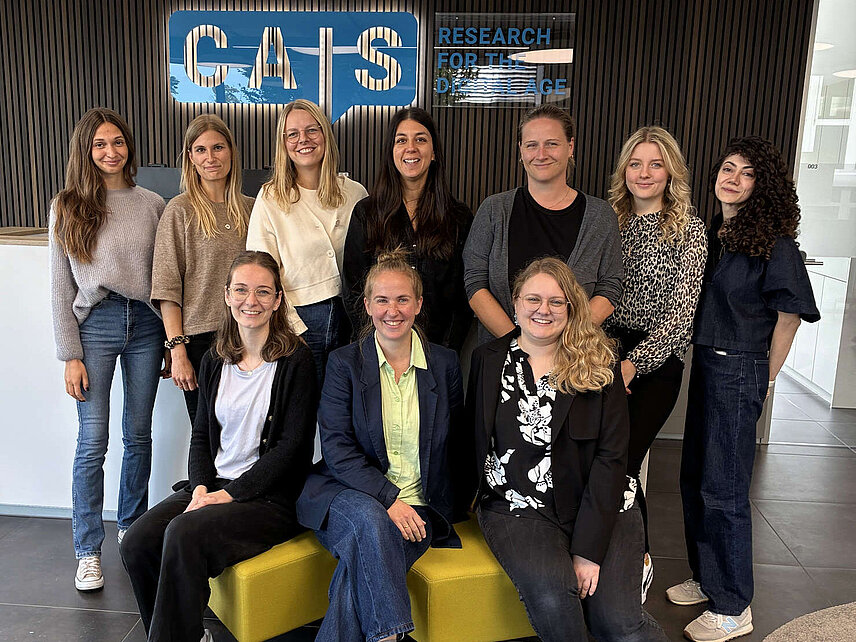10.10.2025
An interdisciplinary women-in-AI working group, funded as a CAIS Working Group and co-led by Dr. Greta Ontrup, Dr. Magdalena Wischnewski, and Dr. Alina Tausch, set out to publish a joint international article and to consolidate the long-term HAITeC network on human-AI teaming.
 Photo: Annika Gödde/CAIS
Photo: Annika Gödde/CAIS
From 23–25 September 2025, the interdisciplinary working group You, I, and AI: Future Scenarios of Human–AI Teaming convened at CAIS in Bochum. The workshop was not just a meeting of participants; it had been co-applied for and co-organised by Dr. Greta Ontrup (RC Trust, University of Duisburg–Essen), Dr. Magdalena Wischnewski (RC Trust, TU Dortmund University), and Dr. Alina Tausch (Faculty of Management, Economics and Society, Witten/Herdecke University) within the CAIS Working Groups funding programme.
The group addressed two deceptively simple questions with far-reaching implications for organisations: Can AI be a team member—and should it? Their discussions approached human–AI collaboration through psychological and social lenses, focusing on trust, team cohesion, and shared mental models. Using scenario techniques, they examined how these dynamics may evolve over time as AI systems are introduced into real work teams, and they differentiated between normatively desirable futures and realistically conceivable ones.
Looking ahead, the group defined a clear next milestone: to prepare a joint publication in an international outlet that articulates a shared research agenda and practical design recommendations for human–AI teaming. Beyond this publication, the collaborators committed to continue as the HAITeC network—Human, AI, Teams, and Emerging Collaboration, including preparations for a proposal for a DFG-funded Wissenschaftliches Netzwerk. The long-term aim remains to co-design collaboration with AI that is not only effective but also aligned with societal values, ethical standards, and the psychological needs of human workers.
We extend our sincere thanks to CAIS for funding and hosting the workshop as part of its Working Groups programme and for providing an inspiring environment for collaboration. Learn more about the working group.
Get involved / network with us
Colleagues and partners interested in collaboration on human–AI teaming are welcome to reach out to our RC Trust researchers:
- Dr. Greta Ontrup (University of Duisburg–Essen) — Lead of the RC Trust Young Investigators Group Psychological Aspects of Human-Algorithm-Interaction.
- Dr. Magdalena Wischnewski (TU Dortmund University) — Researcher at the Chair of Prof. Nicole Krämer.
We look forward to sharing the results of our joint publication and to expanding the HAITeC network.
Category
- News
- Network
- Psychological Aspects of Human-Algorithm-Interaction